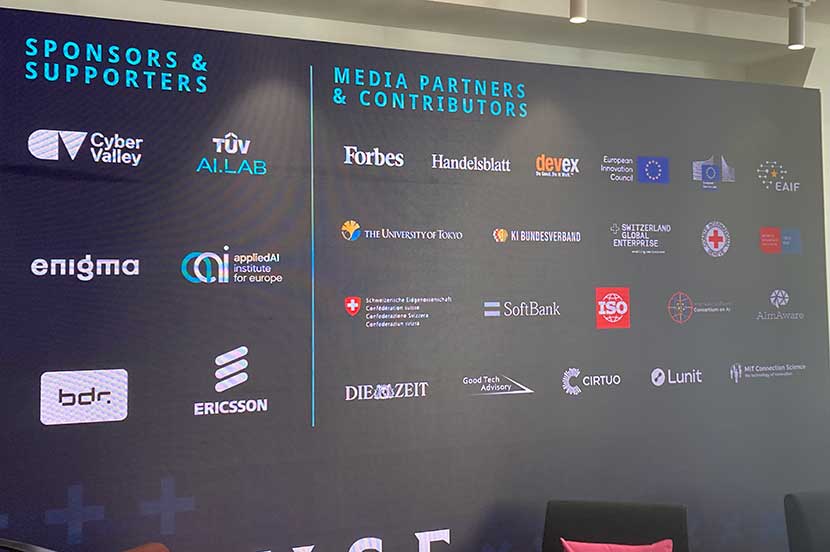
2024’s World Economic Forum (WEF) Annual Meeting was held from January 15-19 in Davos, Switzerland, and this year’s program featured AI House Davos, a new initiative that brought leaders in industry, civil society, government, the investing community and academia together to drive the global conversation on AI. TheInstitute for AI and Beyond, a world-class AI research institute established by The University of Tokyo, SoftBank and others, was an initiator of the forum and SoftBank was a contributor.
About the Institute for AI and Beyond
The Institute for AI and Beyond was established by The University of Tokyo, SoftBank and others as a research institute that promotes advanced AI research and business activities. Conducting joint research since July 2020, the Institute aims to create an ecosystem by promoting “basic research (mid to long-term)” and “applied research (‘high-cycle’ research)” to invest returns from business ventures based on its research results, enabling the fostering of next-generation AI experts and educational activities. Learn more here.
AI House Davos estimates about 5,000 people visited the venue, which hosted more than 180 speakers, 44 main stage sessions, 26 roundtables, and dozens of demos and sessions. The forum covered topics ranging from AI in health care to AI regulation to how AI will reshape people’s understanding of space exploration.


AI and higher education

In addition to joining various sessions organized by AI House Davos, Teruo Fujii, President of The University of Tokyo, served as moderator of a roundtable discussion on “AI and Higher Education.” The panel featured Eng Chye Tan (President of the National University of Singapore), Irene Tracey (Vice-Chancellor of the University of Oxford), Kohei Itoh (President of Keio University) and Paul Alivisatos (President of the University of Chicago). The panelists addressed challenges posed by generative AI and how the technology can be utilized in higher education. They also discussed how university-level education should evolve as generative AI progressively replaces many aspects of human intelligence.
Some noted that the impact of generative AI is being felt not only by students, but also by faculty members, and that the ability to set test questions, as seen in ChatGPT's prompting, is becoming increasingly important. Others noted that AI is not only democratizing and individualizing education, but also advancing interdisciplinary studies. In the question and answer session, there were questions from students about what would happen to the humanities if more students went into data science, and some panelists held the opinion that the humanities will continue to be important and see increased interest.
AI governance and safety

Arisa Ema, Associate Professor at Tokyo College, The University of Tokyo, moderated a session entitled “AI Governance and Safety: G7 Hiroshima AI Process” that surveyed AI regulations and governance, and how to advance international cooperation for the responsible deployment of AI. Speakers on the panel were Amandeep Gill (Under-Secretary-General, Tech Envoy - United Nations), Anna Makanju (Vice President of Global Affairs - OpenAI), Christoph Winterhalter (Vice-President Policy - ISO & CEO of DIN) and Yoichi Iida (Assistant Vice Minister for International Affairs - Japanese Ministry of Internal Affairs and Communications).
Members in the panel noted that not all countries are utilizing AI in the same way, and that interoperability is crucial when it comes to discussions on AI governance and rules. It was also pointed out that to advance the implementation of AI governance, it will be necessary to coordinate discussions among different stakeholders, and, accordingly, there is a need for cooperation among international organizations like the G7 and UN, the private sector and international standardization bodies.
More information on AI House Davos is available here.
(Posted on March 7, 2024)
by the Institute for AI and Beyond
and SoftBank News Editors


